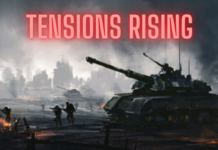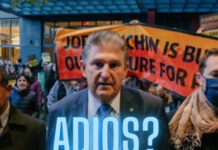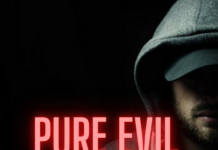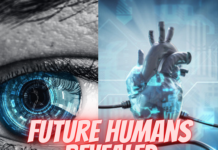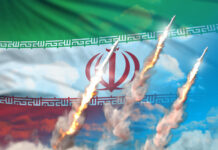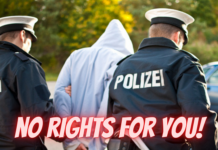
JD Vance raised alarms about Big Tech censorship, calling it the most severe threat to American democracy during the vice presidential debate. He talked about censorship in a press release from 2023 stating it’s one of the reasons children weren’t allowed in schools during the pandemic. He points to the increase in depression among teens and the lack of social skills. Walz believes the true threat to democracy lies with Trump.
At a Glance
- The debate featured Republican candidate JD Vance and Democrat Tim Walz.
- Vance focused on Big Tech censorship as a fundamental threat to democracy.
- He criticized Kamala Harris and the Biden administration for their stance.
- The debate included discussions on election integrity and free speech.
JD Vance’s Stand on Big Tech Censorship
During the debate, Republican vice presidential candidate JD Vance emphasized that Big Tech censorship poses a dire threat to the democratic framework of the U.S. Vance argued that this issue is more pressing than concerns raised by Kamala Harris and Tim Walz. He criticized Harris for endorsing suppression and highlighted the importance of open debate and mutual persuasion.
Vance shifted the debate’s focus when asked by moderator Norah O’Donnell if he would challenge the 2024 election results even if all governors certified them. Vance accused Big Tech corporations of censorship, claiming this is a bigger threat than election disputes. He further asserted that Kamala Harris engaged in large-scale censorship, equating its dangers to that of the January 6 Capitol attack.
Comparing Election Integrity and Big Tech
Norah O’Donnell queried whether Vance would dispute election results, but he steered the topic to Big Tech censorship.
“You have said you would not have certified the last presidential election and would have asked the states to submit alternative electors. That has been called unconstitutional and illegal.” – Norah O’Donnell
Vance compared Trump’s refusal to accept the 2020 election results to Democratic concerns about Russian interference in 2016, stating that the tech industry’s bias is a bigger threat to democracy. Walz countered, calling Vance’s version of events “revisionist history.”
JD Vance says the threat to democracy in the US is censorship – big tech companies, Harris monitoring misinformation
— Elizabeth Landers (@ElizLanders) October 2, 2024
Role of Government and Big Tech in Censorship
Vance brought up the Supreme Court case Murthy v. Missouri, which involved accusations of the Biden administration coercing tech platforms to censor. He also noted that a federal judge recently ruled the Biden administration’s actions unconstitutional. Vance stressed the importance of free, open debate in democracy and criticized Big Tech’s influence on public discourse. Here are the quotes from a press release in 2023 where JD Vance slams censorship from big tech.
“First of all, let’s appreciate the human cost of Big Tech’s censorship. We now know that millions of American schoolchildren were locked out of their schools in a way that harmed their socialization, that increased depression among our young people. And we weren’t having the proper debate about what we were doing to our kids because Big Tech was colluding with the federal government and making it impossible to have that debate. That had a human cost: it harmed our children.”
“I know people in Ohio, I know people in my social circle whose children saw increases in depression because they couldn’t go to school and learned they couldn’t go to school and see their friends. And why weren’t they allowed to do it? Because we weren’t having the debate that we should have been having in this country because Big Tech was preventing that from happening.”
“People in this town are obsessed with the idea that our democracy is under threat because people might vote for a President in 2024 that others don’t like.”
“Well, let me ask you a question. What’s a bigger threat to our democracy? Is it the people of Ohio or Missouri or Tennessee voting for a President that members of the mainstream media don’t like? Or is it technology companies with financial interests in communist China working with our own FBI to censor the American people? One of those things is a threat to our democracy, the other is an enforcement and reinforcement of it.”
SENATOR VANCE SLAMS COORDINATED CENSORSHIP FROM BIG TECH AND BIG GOVERNMENT
Walz attempted to redirect the debate to whether Vance believed Trump lost the 2020 election. Vance evaded a direct answer, emphasizing instead the future and current threats to free speech.
“Tim, I’m focused on the future,” Mr. Vance said, trying to move on.
“That is a damning nonanswer,” Mr. Walz replied. Mr. Vance tried, making the eyebrow-raising argument that Mr. Trump “peacefully gave over power on January the 20th.”
The Human Cost of Censorship
Vance highlighted the detrimental impact of Big Tech’s censorship on American schoolchildren, pointing out an increase in depression and socialization issues due to school closures. He criticized the lack of debate on these issues, attributing it to Big Tech’s collusion with the federal government. Vance questioned what poses a greater threat to democracy: tech companies censoring Americans with the FBI’s help or citizens voting for an unpopular president.
Walz refuted Vance’s points, stating that “January 6th was not Facebook ads.” Vance countered that the true threat lies in Big Tech’s ability to control public discourse, which he sees as a core element of democratic engagement.
🚨NEW: Mailchimp Censors Senator @JDVance1's Press Release, Blames ‘Error’
“Mailchimp suspended my press team’s account after we announced President Trump’s support…But big tech censorship won’t stop us from fighting for the people of East Palestine.”https://t.co/NyxVAq9yG3
— Senator Vance Press Office (@SenVancePress) May 9, 2023
Conclusion of the Debate
The vice presidential debate was one of the only opportunities for Vance and Walz to present their stances before the 2024 election. Hosted by CBS News in New York and moderated by Norah O’Donnell and Margaret Brennan, the debate highlighted contrasting views on censorship, election integrity, and the role of Big Tech in public discourse.
U.S. Vice Presidential hopeful Tim Walz said he “misspoke” about being in Hong Kong when the deadly Tiananmen Square protests of 1989 erupted, without directly clarifying his whereabouts on June 4 of that year.
“I got there that summer and misspoke on this,” Walz said, during a televised debate Tuesday evening, after being pressed to explain the discrepancy. But the Minnesota governor, who at times looked nervous during the exchange with Republican JD Vance, followed up with a garbled response that muddied the timeline.
With the debate underscoring the deep divisions on how to handle the influence of Big Tech, it is clear that censorship and free speech will remain pivotal issues in this election cycle. Vance’s arguments suggest a growing concern among Republicans about the power wielded by tech giants and their impact on democracy.
Yesterday, Donald J. Trump nearly lost his life. An armed gunman waited for him in the bushes. He brought a go-pro camera to record it. A secret service agent spotted the barrel of a gun through a fence and shot at the gunman. The gunman fled. He was caught. And now we slowly…
— JD Vance (@JDVance) September 16, 2024









